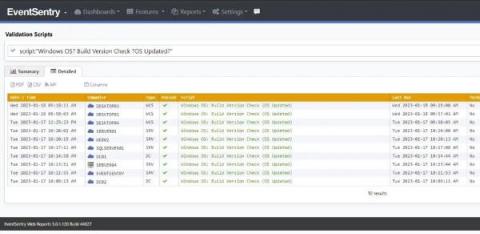Security | Threat Detection | Cyberattacks | DevSecOps | Compliance
Featured Posts
The Benefits of Managed Security Services and a 24/7 SOC
The security of your enterprise is more important than ever. With the rise in cyber threats, it's essential to have the right tools and strategies in place to protect your business from malicious attacks. One of the most effective ways to ensure maximum protection is by leveraging managed security services and a 24/7 security operations center. Let's break down why this approach can be so beneficial.
Testing and Assessment for High Assurance
How Businesses Can Stay Safe From Undetected Cyber Attacks
How to integrate continuous API fuzzing into the CI/CD?
API security is a growing concern for businesses that offer or consume APIs. APIs, or application programming interfaces, allow different software systems to communicate and exchange data. They allow businesses to build integrations and connect with partners, customers, and other stakeholders. However, as more sensitive data is being shared through APIs, it is essential to ensure that these interfaces are secure and protected from unauthorized access or manipulation. In this blog post, we'll discuss how continuous fuzzing can be a powerful tool to secure APIs and how developers can adopt a "secure by default" approach by integrating continuous fuzzing into SDLC processes.
7 Things You Need To Know About Mobile Threat Defense Services
A modern business needs to secure both physical networks and mobile devices. Here's what you need to know about mobile threat defense services.
OpenAI (ChatGPT) Vulnerability Remediation Concept Work
OpenAI is an artificial intelligence research laboratory that surprised the world with ChatGPT. It was founded in San Francisco in late 2015 by Sam Altman and Elon Musk, and many others. ChatGPT grabbed 1M people's attention in the first six days, and unbelievable AI & Human conversations screenshots are still getting shared. We couldn't resist more to see how OpenAI can help developers and application security teams by sharing remediation guidance. Many application security teams manage millions of security issues on Kondukto, which would eventually save them hundreds of hours.
The Life of the Sysadmin: A Patch Tuesday Story
The System Administrator! AKA the Sysadmin. The keeper of the network, computers – well basically all things technology. The one who is hated for imposing complex passwords and other restrictions, but taken for granted when everything works well. They are the first to be called when “facebuuk.com” reports: “domain does not exist”.









